6-Aminochrysene, 99%,6-Aminochrysene
产品编号:西域试剂-WR349693| CAS NO:2642-98-0| 分子式:C18H13N| 分子量:243.3
6-Aminochrysene (6-Aminochrysene) 是芳香胺类的化学治疗剂,用于脾肿大,骨髓性白血病和乳腺癌。
本网站销售的所有产品仅用于工业应用或者科学研究等非医疗目的,不可用于人类或动物的临床诊断或者治疗,非药用,非食用,
| 英文名称 | 6-Aminochrysene | ||||||||||||||||
|---|---|---|---|---|---|---|---|---|---|---|---|---|---|---|---|---|---|
| CAS编号 | 2642-98-0 | ||||||||||||||||
| 产品描述 | 6-Aminochrysene (6-Aminochrysene) 是芳香胺类的化学治疗剂,用于脾肿大,骨髓性白血病和乳腺癌。 | ||||||||||||||||
| 产品熔点 | 209-211 °C(lit.) | ||||||||||||||||
| 产品沸点 | 501.2±19.0 °C at 760 mmHg | ||||||||||||||||
| 产品密度 | 1.3±0.1 g/cm3 | ||||||||||||||||
| 产品闪点 | 286.9±16.8 °C | ||||||||||||||||
| 精确质量 | 243.104797 | ||||||||||||||||
| PSA | 26.02000 | ||||||||||||||||
| LogP | 4.63 | ||||||||||||||||
| 蒸气压 | 0.0±1.3 mmHg at 25°C | ||||||||||||||||
| 折射率 | 1.814 | ||||||||||||||||
| 溶解性数据 | In Vitro:
DMSO : 100 mg/mL (411.02 mM; Need ultrasonic) 配制储备液
*
请根据产品在不同溶剂中的溶解度选择合适的溶剂配制储备液;一旦配成溶液,请分装保存,避免反复冻融造成的产品失效。 In Vivo:
请根据您的实验动物和给药方式选择适当的溶解方案。以下溶解方案都请先按照 In Vitro 方式配制澄清的储备液,再依次添加助溶剂:
——为保证实验结果的可靠性,澄清的储备液可以根据储存条件,适当保存;体内实验的工作液,建议您现用现配,当天使用;
以下溶剂前显示的百
| ||||||||||||||||
| 体外研究 | 6-氨基噻吩通过大鼠肝微粒体抑制苯胺的羟基化,对硝基苯甲醚的0-去甲基化和氨基比林的N-去甲基化。用6-氨基噻吩预处理大鼠可显着降低体外N-去甲基化,但显着增加羟基化和0-去甲基化。 | ||||||||||||||||
| 体内研究 | 6-Aminochrysene是体内几种固体实验肿瘤生长的抑制剂,对人乳腺癌具有抑癌作用。向小鼠长期局部皮肤施用6-氨基噻吩诱导3个月后良性皮肤肿瘤和7个月后皮肤恶性肿瘤的发展。雌性小鼠的反应早于雄性。当6-Aminochrysene腹侧而不是背侧应用时,皮肤肿瘤的诱导更快。皮肤应用后尿排泄量约为口服后的两倍。 | ||||||||||||||||
| 动物实验 | 大鼠:雄性CD大鼠在处死前每天一次腹膜内注射25,50和100mg / kg的6-氨基噻吩预处理连续3天,这在最后一次给药后24小时进行。控制仅接收溶剂。 | ||||||||||||||||
| 稳定性 | 常温常压下稳定,避免与不相容材料接触。
与强氧化剂反应。 | ||||||||||||||||
| 储存条件 | 密封储存,储存于阴凉、干燥的库房。 |
相关文档
化学品安全说明书(MSDS)
下载MSDS质检证书(COA)
相关产品
| 符号 |
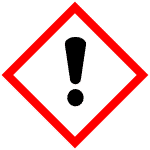
GHS07 |
|---|---|
| 信号词 | Warning |
| 危害声明 | H302 |
| 个人防护装备 | dust mask type N95 (US);Eyeshields;Gloves |
| 危害码 (欧洲) | Xn: Harmful; |
| 风险声明 (欧洲) | 22 |
| 安全声明 (欧洲) | S45-S36/37/39-S26 |
| 危险品运输编码 | NONH for all modes of transport |
| WGK德国 | 3 |
| RTECS号 | GC0500000 |
| 海关编码 | 2921499090 |
Synonym:6-Chrysenamin Section 2 - COMPOSITION, INFORMATION ON INGREDIENTS
Risk Phrases: 40 Section 3 - HAZARDS IDENTIFICATION EMERGENCY OVERVIEW
Limited evidence of a carcinogenic effect.The toxicological properties of this material have not been fully investigated. Potential Health Effects Eye: May cause eye irritation. Skin: May cause skin irritation. Ingestion: May cause irritation of the digestive tract. The toxicological properties of this substance have not been fully investigated. Inhalation: May cause respiratory tract irritation. The toxicological properties of this substance have not been fully investigated. Chronic: No information found. Section 4 - FIRST AID MEASURES Eyes: Flush eyes with plenty of water for at least 15 minutes, occasionally lifting the upper and lower eyelids. Get medical aid. Skin: Get medical aid. Flush skin with plenty of water for at least 15 minutes while removing contaminated clothing and shoes. Wash clothing before reuse. Ingestion: Never give anything by mouth to an unconscious person. Get medical aid. Do NOT induce vomiting. If conscious and alert, rinse mouth and drink 2-4 cupfuls of milk or water. Inhalation: Remove from exposure and move to fresh air immediately. If not breathing, give artificial respiration. If breathing is difficult, give oxygen. Get medical aid. Notes to Physician: Section 5 - FIRE FIGHTING MEASURES General Information: As in any fire, wear a self-contained breathing apparatus in pressure-demand, MSHA/NIOSH (approved or equivalent), and full protective gear. During a fire, irritating and highly toxic gases may be generated by thermal decomposition or combustion. Extinguishing Media: Use agent most appropriate to extinguish fire. Use water spray, dry chemical, carbon dioxide, or appropriate foam. Section 6 - ACCIDENTAL RELEASE MEASURES General Information: Use proper personal protective equipment as indicated in Section 8. Spills/Leaks: Clean up spills immediately, observing precautions in the Protective Equipment section. Sweep up, then place into a suitable container for disposal. Avoid generating dusty conditions. Provide ventilation. Section 7 - HANDLING and STORAGE Handling: Wash thoroughly after handling. Remove contaminated clothing and wash before reuse. Use with adequate ventilation. Minimize dust generation and accumulation. Avoid contact with eyes, skin, and clothing. Keep container tightly closed. Avoid ingestion and inhalation. Storage: Store in a tightly closed container. Store in a cool, dry, well-ventilated area away from incompatible substances. Section 8 - EXPOSURE CONTROLS, PERSONAL PROTECTION Engineering Controls: Facilities storing or utilizing this material should be equipped with an eyewash facility and a safety shower. Use adequate ventilation to keep airborne concentrations low. Exposure Limits CAS# 2642-98-0: Personal Protective Equipment Eyes: Wear appropriate protective eyeglasses or chemical safety goggles as described by OSHA's eye and face protection regulations in 29 CFR 1910.133 or European Standard EN166. Skin: Wear appropriate protective gloves to prevent skin exposure. Clothing: Wear appropriate protective clothing to prevent skin exposure. Respirators: A respiratory protection program that meets OSHA's 29 CFR 1910.134 and ANSI Z88.2 requirements or European Standard EN 149 must be followed whenever workplace conditions warrant respirator use. Section 9 - PHYSICAL AND CHEMICAL PROPERTIES Physical State: Powder Color: brown Odor: None reported. pH: Not available. Vapor Pressure: Not available. Viscosity: Not available. Boiling Point: Not available. Freezing/Melting Point: 209.00 - 211.50 deg C Autoignition Temperature: Not applicable. Flash Point: Not applicable. Explosion Limits, lower: Not available. Explosion Limits, upper: Not available. Decomposition Temperature: Solubility in water: Specific Gravity/Density: Molecular Formula: C18H13N Molecular Weight: 243.0977 Section 10 - STABILITY AND REACTIVITY Chemical Stability: Stable under normal temperatures and pressures. Conditions to Avoid: Incompatible materials, dust generation, excess heat, strong oxidants. Incompatibilities with Other Materials: Oxidizing agents. Hazardous Decomposition Products: Nitrogen oxides, carbon monoxide, irritating and toxic fumes and gases, carbon dioxide. Hazardous Polymerization: Has not been reported. Section 11 - TOXICOLOGICAL INFORMATION RTECS#: CAS# 2642-98-0: GC0500000 LD50/LC50: Not available. Carcinogenicity: 6-Aminochrysene - Not listed by ACGIH, IARC, or NTP. Other: See actual entry in RTECS for complete information. Section 12 - ECOLOGICAL INFORMATION Section 13 - DISPOSAL CONSIDERATIONS Dispose of in a manner consistent with federal, state, and local regulations. Section 14 - TRANSPORT INFORMATION IATA Not regulated as a hazardous material. IMO Not regulated as a hazardous material. RID/ADR Not regulated as a hazardous material. Section 15 - REGULATORY INFORMATION European/International Regulations European Labeling in Accordance with EC Directives Hazard Symbols: XN Risk Phrases: R 40 Limited evidence of a carcinogenic effect. Safety Phrases: S 28A After contact with skin, wash immediately with plenty of water. S 36/37 Wear suitable protective clothing and gloves. S 37 Wear suitable gloves. S 45 In case of accident or if you feel unwell, seek medical advice immediately (show the label where possible). WGK (Water Danger/Protection) CAS# 2642-98-0: No information available. Canada None of the chemicals in this product are listed on the DSL/NDSL list. CAS# 2642-98-0 is not listed on Canada's Ingredient Disclosure List. US FEDERAL TSCA CAS# 2642-98-0 is not listed on the TSCA inventory. It is for research and development use only. SECTION 16 - ADDITIONAL INFORMATION N/A |
|
~99% 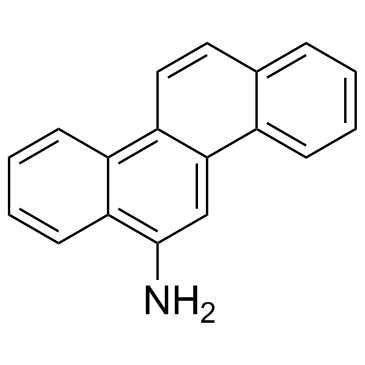
2642-98-0 |
| 文献:MacCrehan, W. A.; May, W. E.; Yang, S. D.; Benner, B. A. Analytical Chemistry, 1988 , vol. 60, # 3 p. 194 - 199 |
|
~% 
2642-98-0 |
| 文献:Ciba Patent: CH170447 , 1934 ; |
|
~% 
2642-98-0 |
| 文献:Newman; Cathcart Journal of Organic Chemistry, 1940 , vol. 5, p. 618,620 |
| 上游产品 4 | |
|---|---|
| 下游产品 5 | |

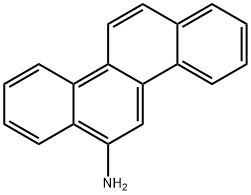
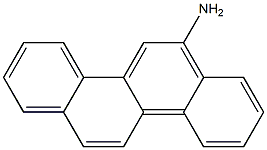
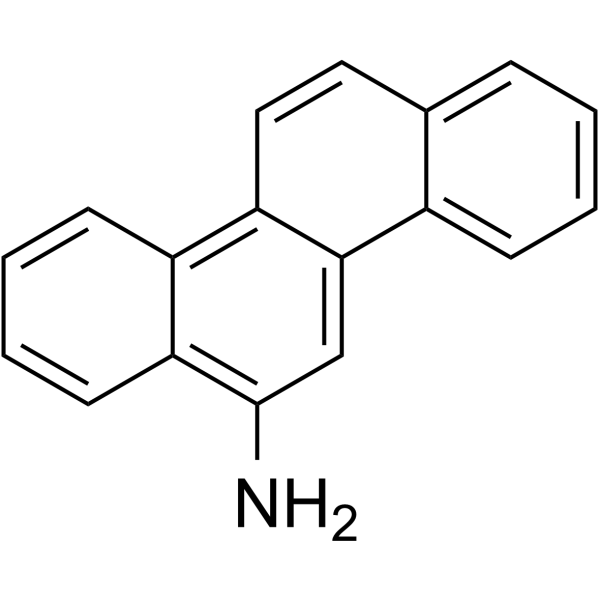
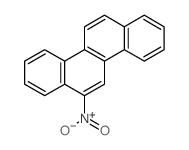

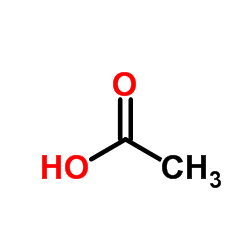

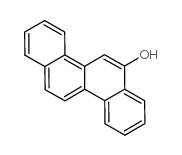
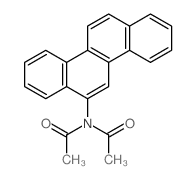
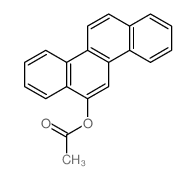
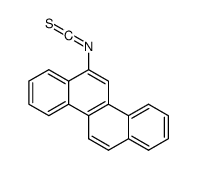
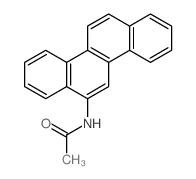





 浙公网安备 33010802013016号
浙公网安备 33010802013016号